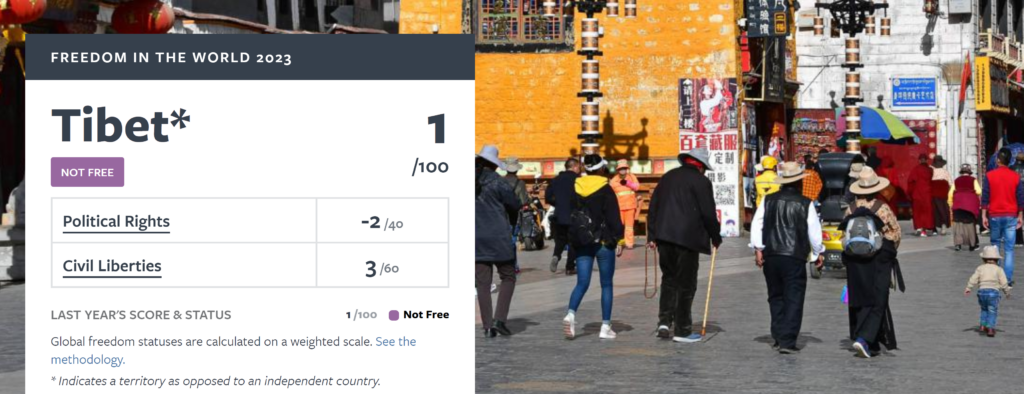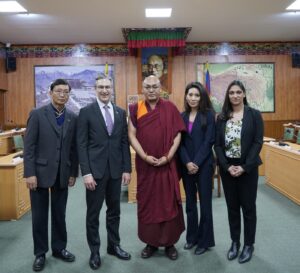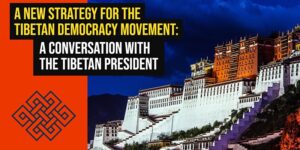Tibet has been an effective police state for more than a decade, under the authority of Chinese leader Xi Jinping. Beijing’s target is long-term control over the younger generation, with the goal of indoctrinating them with Communist Party ideology. Activists argue it has come at an unacceptable cost to Tibetan identity, and there is shared interest in guaranteeing basic rights, Newsweek’s John Feng reports:
The U.N.’s understanding of the situation is aided by evidence collected by nonprofits like the Boston-based Tibet Action Institute, founded by Lhadon Tethong. In a December 2021 report on China’s “colonial boarding schools,” the group found that nearly 80 percent of Tibetan children between the ages of 6 and 18 were enrolled in residential schools, compared to the national average of just over 20 percent.
“It’s a classic colonial system designed to erase the Tibetan identity and culture of this whole generation, by not just putting them in schools to streamline or fast-track it, but to remove them from their parents, families and communities so that transmission of language and culture isn’t there,” Tethong told Newsweek.

Credit: Freedom House
Beijing’s attempt to eradicate Tibet’s distinctive culture is characteristic of authoritarian regimes and demands a response from democratic forces, others attest.
“The world needs Tibet and Tibetans have so much to offer,” said Damon Wilson (above), President of the National Endowment for Democracy (NED). “Know that you are not alone. Know that we stand with you. Continue to be resilient to stand firm in the principles of justice, democracy, and non-violence. Your struggle for freedom is a beacon of hope for so many around the world.”

Secretary Sonam Dorjee, NED President Damon Wilson, Speaker Khenpo Sonam Tenphel, Pema Tulotsang and Mona Dave. (L to R). Credit: Tibetan Parliament-in-Exile.
He reaffirmed NED’s commitment to supporting the Tibetan democratic movement on a visit to the Tibetan Parliament-in-Exile, accompanied by NED colleagues Pema Tulotsang and Mona Dave.
In September, reporting from the civil society organization Citizen Lab claimed that the Chinese government had collected genetic material from nearly a third of the population in Tibet, without clearly obtaining consent from those involved, Freedom House reports. The CCP has used genetic materials collected from Uyghurs in Xinjiang to further its surveillance systems and forced ethnic change campaign in the region.
Adrian Zenz, the director of China studies at the Victims of Communism Memorial Foundation in Washington, D.C., said Beijing’s method of targeting Tibetan children “is very much about long-term control,” especially over the younger generation.
 “There’s an aspect of wanting to improve education by centralizing schools, closing down small schools of poor quality, eliminating the commute for children and letting them go to centralized boarding schools,” Zenz told Newsweek. “So we cannot entirely dismiss that it is about improving educational quality.
“There’s an aspect of wanting to improve education by centralizing schools, closing down small schools of poor quality, eliminating the commute for children and letting them go to centralized boarding schools,” Zenz told Newsweek. “So we cannot entirely dismiss that it is about improving educational quality.
“But of course, a very primary aspect of that for the CCP in all the more sensitive minority regions has been social control. It is about indoctrinating children. It is about teaching them the Chinese language and CCP ideology. If we look at the development of ethnic policy, assimilation and ideological indoctrination have been significantly on the rise.” RTWT
#China‘s method of targeting #Tibetan children “is very much about long-term control,” especially over the younger generation, @VoCommunism‘s @adrianzenz told @Newsweek‘s @johnsfeng. https://t.co/bSvrZ0RXDg
— Democracy Digest (@demdigest) March 14, 2023







